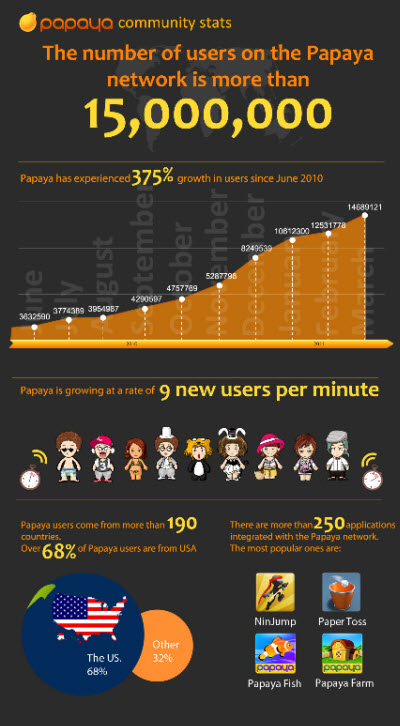
The company plans to use the funding to expand its ecosystem of Android developers in both the U.S. and Europe, said Si Shen (pictured), chief executive and co-founder of PapayaMobile. The company makes a platform for game developers, who use it to create mobile games with social features that can spread quickly and be easily monetized.
[aditude-amp id="flyingcarpet" targeting='{"env":"staging","page_type":"article","post_id":256547,"post_type":"story","post_chan":"none","tags":null,"ai":false,"category":"none","all_categories":"business,entrepreneur,games,mobile,","session":"C"}']The amount of money is typical of deals in mobile games these days. The market has heated up since Japan’s DeNA bought rival Ngmoco for $403 million last year and Japan’s Gree bought another rival, OpenFeint, last week for $104 million.
The round was led by Keytone Ventures, a Chinese venture firm and DCM. The company launched its Papaya game platform last year to help developers spread their games through social means. Much like rivals — OpenFeint, Scoreloop and Ngmoco — PapayaMobile gets mobile users to spread games and make them more social via leaderboards, cross promotion, and multiplayer competition.
AI Weekly
The must-read newsletter for AI and Big Data industry written by Khari Johnson, Kyle Wiggers, and Seth Colaner.
Included with VentureBeat Insider and VentureBeat VIP memberships.
Shen said the company has more than 350 developers using its tools, and those developers have more than 15 million users on Google’s Android mobile operating system. In China, Android’s growth over the next two years will be “staggering,” said Joe Zhou, managing partner of Keytone Ventures. PapayaMobile, based in Beijing, is in a good spot to compete in the market, he said.
VentureBeat's mission is to be a digital town square for technical decision-makers to gain knowledge about transformative enterprise technology and transact. Learn More
